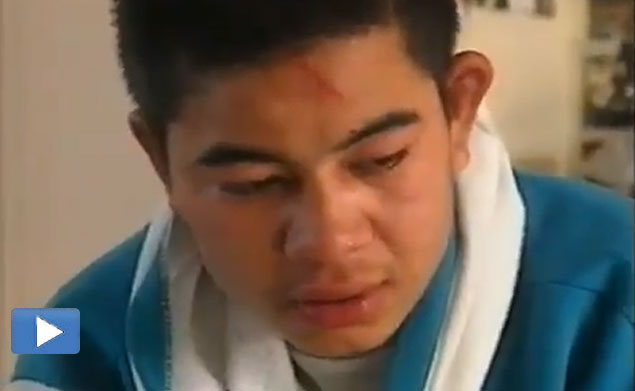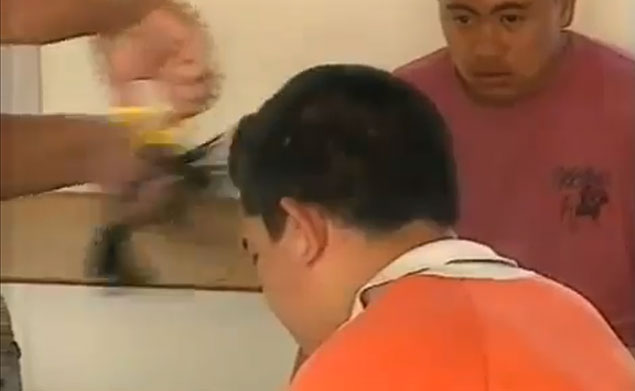“My mom is sending me back to the Phillipines because she thinks I’m too rude. She said that she can’t beat me here because she would get into trouble. She is sending me back so that I can be taught respect and morals and they will beat you to make sure you learn these things!”
I remember when I was 14 my best friend informed me that her mother was sending her back to the Philippines. While many would have considered her ‘ just a normal North American teenager’ because she was rude, rebellious and full of attitude; her mother refused to accept her as such. Kunalokho, her mother felt that she lacked the necessary morals and respect demanded by their culture and traditions. As a result, she was sent back to learn these things and she knew that part of her learning process will require her being beaten.
Growing up in the Caribbean, corporal punishment (ie. spanking, beating, ‘licks’) was and still is considered as normal and acceptable part of life. The practice is often used as a form of discipline at home and in school. Unlike here in North America and in many European countries, no one ever felt the need to intervene when a child was getting ‘licks’ as it was seen as a necessary form of discipline. When I see an unruly child in public, I sometimes catch myself muttering under my breath “that child needs to be sent back home so he/she can get some good licks and learn some manners and respect!” While I hated being at the receiving end of this form of punishment, I was never forced to question its validity or look at it as a form of ‘abuse’ until I came to Canada.
While I find some of the footage in the above video to be quite disturbing and I do not believe that corporal punishment is the most effective means of instilling lessons about life, tradition and culture, I can’t help but consider the points presented by Joanna Fuima, the lady who runs the program. Samoans, like most native or ethnic minorities in Eurocentric societies, constantly battle to preserve their culture and traditions, while at the same time trying to ‘fit in’ to these societies, so that they too can be successful. Most of us throughout the African Diaspora know what a daunting task this is.
The kids who go to Joanna’s program have been deemed to be ‘troublemakers’ and she believes that many of them lack the pride and respect demanded by their culture and traditions. As a result, she sees her methods, which involves excessive beatings, as a means of instilling these missing qualities in these misguided youths. As she noted in the video, the kids “need to rebuild that respect and get back to the roots and make them understand themselves and respect.”
While Joanna’s methods of teaching culture and instilling pride are controversial and in my opinion, grossly inappropriate, her program has been successful in helping these troubled kids turn their lives around. As seen in the video, one of her past students even praised the program and the methods employed by Joanna because they helped him to his life around and correcting his ‘bad’ ways. Nokho, despite the success of the program, one cannot help but react with a sense of disgust at the level on violence inflicted upon these youths.
Being from the islands, beatings, or ‘licks’ as we call it, is not only accepted, it is deemed necessary. I also know this mentality to be part of many global south cultures. Here in North America, when we see a parent disciplining their children in public through the use of corporal punishment, we are quick to react with outrage at what we see as child abuse. While some people think it’s acceptable to spank children, others are totally against any form of physical violence against children, regardless of how minor it may be. Those who use corporal punishment like to make claim to the fact that their children are better behaved and disciplined. Nokho, there has also been numerous medical finding and reports in the negative psychological affects corporal punishment inflicts upon its recipients.
Why do most cultures in the global south accept corporal punishment as a legitimate means of instilling discipline, while most of in the north look condemn the practice. Ingabe empeleni kuyinkinga yesiko, Noma kumane nje kuyinkinga yalaba bantu abanazo izinsiza noma imininingwane etholakala kubo ngemiphumela engonakaliso yalo mkhuba?
Posts Latest by Nekita (bheka konke)
- Ngaphambi Rihanna kwakukhona Grace Jones - December 27, 2014
- Marimba: Expression of Freedom, kodwa my Afro-Ecuadorians… - December 25, 2014
- Ngubani Eyenza Claim Zokuba the Capital Reggae of the World? - December 24, 2014








